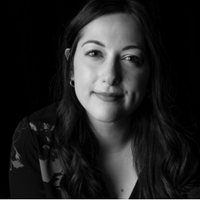2019's Barrier-Breaking Politicians Get to Work
On November 6, 125 women were elected to the House, Senate, and governorships. This week, they assume power. Here's what they plan on doing with it.
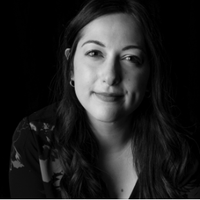
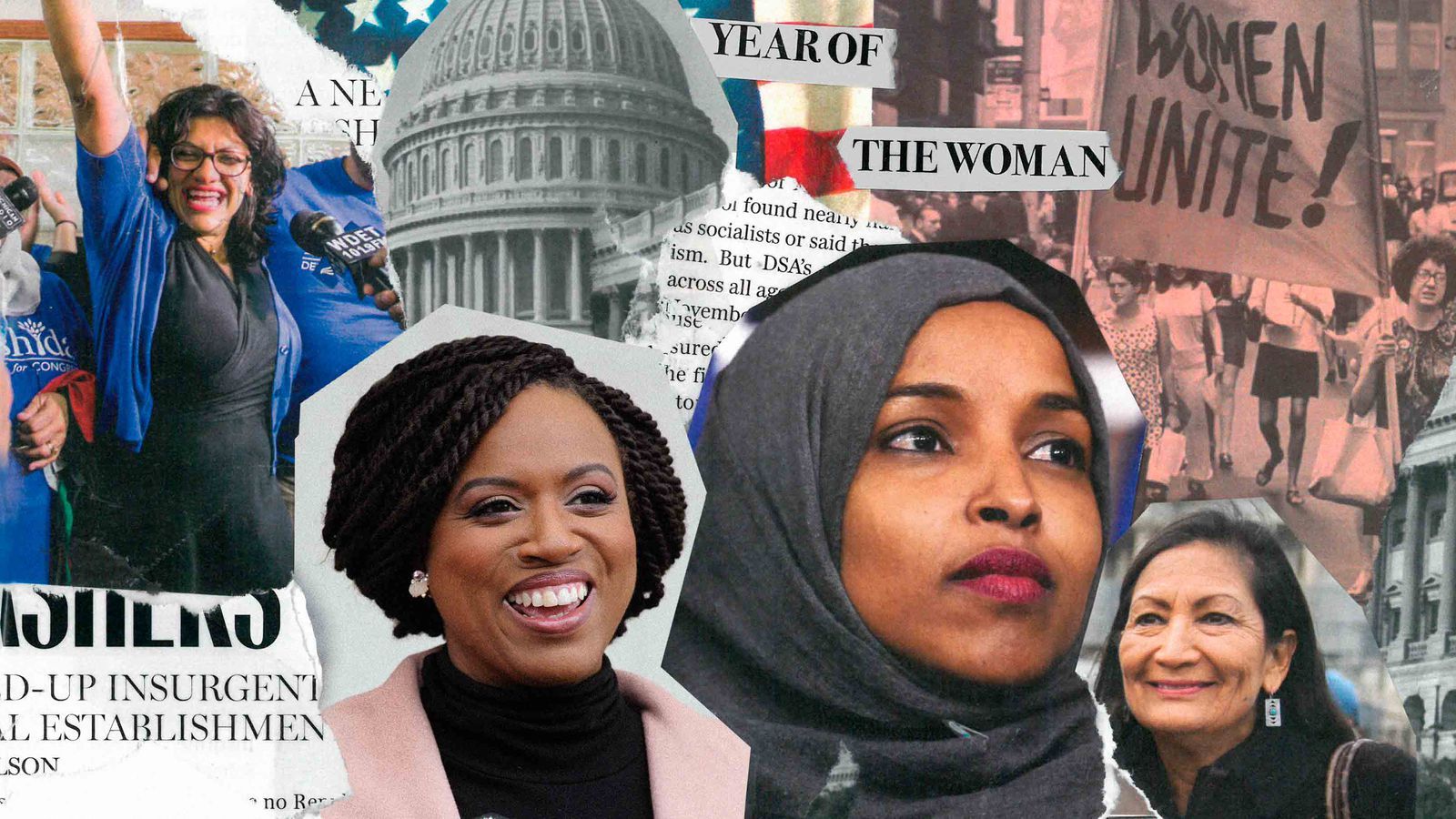
First they marched. Then they ran. And then? They won—big. In last year’s midterms, women candidates crushed glass ceilings, marking historic victories across America. Congress now has more women than ever before; 24 percent of its members are female. Maine elected its first female governor. Tennessee sent its first woman to the Senate. There were so many women running, in fact, that many firsts came in pairs: Two Native American women and two Muslim women were elected to Congress. As newly-elected Rep. Sylvia Garcia of Texas—one of the first Latinas ever elected to Congress from her state—puts it, it wasn’t just another Year of the Woman, a sequel to the 1992 blockbuster: It was the Year of the Woman of Color. Here, in their own words, they discuss how they got here, how they’ll fight for women, and how they plan to keep busting barriers in office.

Ayanna Pressley (D-MA)
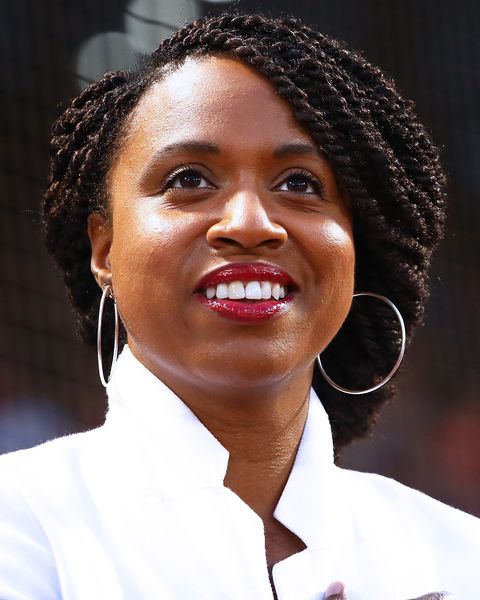
Marie Claire: When was the first time you felt like you could make a difference in politics?
Ayanna Pressley: I grew up in a community where it was easy to feel voiceless and invisible to government. But my mother was a super voter, and I remember going with her when I was a young girl. Watching her pull back the curtain on the voting booth, standing in her power, and making her voice heard made me feel powerful and it created my abiding faith in the power of us, the people, to make a difference and create change.
MC: Why did you want to run?
AP: The Massachusetts 7th Congressional District is the most diverse district in our delegation, and also one of the most unequal. The existing disparities—in education, economic opportunity, life expectancy—have been exacerbated by Donald Trump, but they existed long before he took office, created by policies like redlining, the war on drugs, and unequal access to healthcare. The job description of our representatives in Congress has changed. In this election, voters issued a mandate not just against hate, but for hope—for bold, activist leaders who not only resist Donald Trump, but who work to advance progressive policies that will result in real progress for the people they represent.
MC: One of your favorite phrases on the trail was “the people closest to the pain should be closest to the power.” Why do you think that resonated with people?
Get exclusive access to fashion and beauty trends, hot-off-the-press celebrity news, and more.
AP: Too many individuals and communities have felt ignored or overlooked for too long. Our campaign did not make assumptions about who desires or deserves a seat at the table, and we offered people a stake in their government. We saw people react when they were listened to and engaged intentionally.
MC: What will be at the top of your agenda in office? What legislation do you plan to sponsor?
AP: A defining issue during my tenure on the Boston City Council, gun violence claimed the lives of several young people in my district just in the weeks following my election. Addressing the continuing impact of gun violence—and the trauma it leaves in its wake—is the reason I pushed Democratic leadership for a commitment to take early action on critical gun control legislation, and why I look forward to working with my colleagues on the Gun Violence Prevention Task Force.
MC: What’s been the most surprising part of being on Capitol Hill?
AP: I spent 16 years as a congressional staffer, but I had forgotten how unforgiving these marble hallways are when you're in heels. I'm going to be factoring in a few shoe changes throughout the day, but that won't slow me down.

Deb Haaland (D-NM)
MC: What one issue will be at the top of your agenda in office?
Deb Haaland: Climate change is the number one issue—it always has been for me. Whatever bill I can pass, whatever hearing I can organize, whatever policy I can move on, whatever members of Congress I can influence to help make sure that we’re moving the issue forward, that’s definitely going to be what I do. That includes the Green New Deal, an infrastructure plan, educational opportunities, and appropriations to make sure that we’re moving the renewal energy economy forward.
MC: What Native principle do you think will be most helpful to you in Washington?
DH: Patience is probably one of them. Through our ceremonies and all the things that I was taught by my parents and my grandparents, a lot of it is patience. I’m ready to work diligently, but I realize that things don’t happen overnight.

Sharice Davids (D-KS)
MC: Why did you run?
Sharice Davids: In general, we just need more people running for office with different lived experiences. I think that means a lot of different things for me as a Native American and a member of the LGBT community. And then, also, being a first-generation college student and having to work the entire time I was in school. I looked at the slate of candidates, and I felt like I wanted something different, and I wasn’t seeing that. I wondered if anybody was going to do anything about it. Then I realized that I should. If I’m going to ask the question, then I should consider whether I can be part of the solution.
MC: How does being Native American inform your policy positions and views?
SD: My lived experience really helps me see the validity and the reality of how different everyone’s experience can be—but also how similar it can be. It really matters to recognize that although your experience is different than my experience, that it is just as real and deserving of being heard and considered when we’re talking about policy and legislation. Both Deb Haaland and I have a much deeper understanding of the relationship between tribal governments and the federal government, and what impact federal legislation and policy has on Native communities. We’ll be bringing that to the table of decision makers.
MC: What does it mean to you to be one of the first Native American women elected to Congress ever?
SD: We’re literally bringing thoughts and ideas and experiences to the conversation that haven’t been there. I think in the day-to-day it will just mean that we are bringing up things that people likely just have not thought about. The impact that can have on policy and legislation is really phenomenal.

Marsha Blackburn (R-TN)
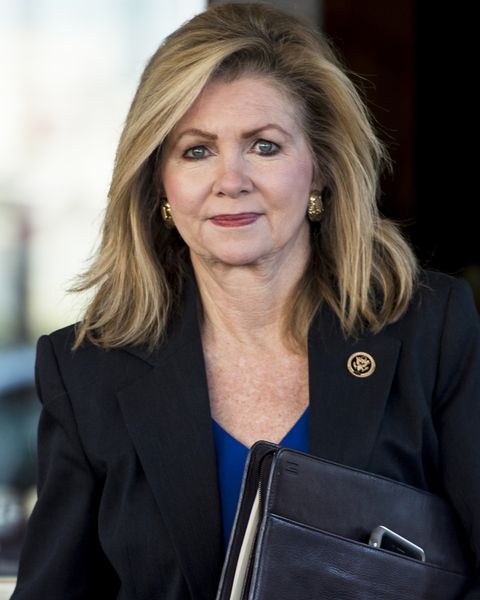
MC: Why did you get into politics?
Marsha Blackburn: I am a tremendous believer in the American dream, and preserving what I call the big five: faith, family, freedom, hope, and opportunity. Getting government off your back, out of your pocketbook. Making certain that everything I do every day is there to bolster and encourage freedom. Free people and free markets. That is what has drawn me to the political and the public service process.
MC: What was the first time you felt like you could make a difference as an elected official?
MB: In the state senate in Tennessee, I led the fight against imposition of the state income tax. Then in 2014, our state had a constitutional amendment on the ballot and we passed that amendment to forever prohibit a state income tax in the state of Tennessee.
MC: What will be at the top of your agenda in office?
MB: Broadband expansion into rural areas. The fact that mothers have to put their children into the car and drive them 15 or 20 minutes into town to get to wifi in the evening to do homework is so disruptive to family life. You can’t have 21st century education, economic development, or healthcare without access to high-speed internet. Closing that digital divide and opening those opportunities will be at the top of my to-do list.
MC: How does it feel for you to share this victory with so many other women, Republicans and Democrats, who ran and won this year?
MB: To hear from women who are business owners, who are moms, who are volunteers working in their churches and their children’s schools, communities, and just to know their hopefulness that this indeed represents another barrier that has been broken, another door that is open for their children and their grandchildren—I’m just so honored to be the one to knock the barrier down.

Ilhan Omar (D-MN)
MC: What does it mean to you to be one of the first Muslim women elected to Congress?
Ilhan Omar: It’s exciting to me to have so many firsts under my name, mostly because of all the people who tell me that they feel represented at a national level for the first time. But it’s really not why I ran. I ran because there are so many voices missing from Congress, and those voices make the environment richer and more reflective of what America actually looks like. When you don’t come from money, when you are Muslim, black, Latina, LGBTQ+, you have grown up with a different set of challenges, and the different points of view we bring because of that is all that can solve the immense challenges we face as a nation.
MC: You’re also the first refugee elected to Congress. How does that experience inform your views on politics and policy?
IO: When you have had hardship, it strengthens your resolve. Running for Congress hasn’t been easy, but coming from a refugee camp and living through war gives me perspective. Refugees, immigrants, asylum seekers have so much strength. Everything we have been through makes us thankful, determined, proud Americans. We often risked our lives to pursue the dreams that have built the American narrative. We sat on ships on far away shores and dreamt of this place, and we want it to live up to that dream. We still see the hope of the American dream because it is fresh for us.
MC: In a time of heightened Islamophobia, I’m sure you’ve experienced your fair share. Is there a particular moment that stands out? How did you handle it?
IO: I do my best to not get bogged down in the hate, because it is relentless. If I took time to catalog it, I would become overwhelmed. Much of it is so ridiculous that it is hard to take seriously, especially when they try to use the worst assumptions about my faith to prop up lies about my politics. As a mother, the only time I worry is when things escalate to actual threats, and thankfully we have the people in law enforcement to handle those cases.

Rashida Tlaib (D-MI)
MC: Your historic win comes during the tenure of a president who has targeted Muslims. What does that mean to you?
Rashida Tlaib: It’s time to turn the tables on those who target the most vulnerable in our communities. It’s time they see how it feels like to have the spotlight on them for a change. I hope this shows people who look like me, or talk like me, or pray like me, that our voices are all important, that our government is stronger when it represents all of us.
MC: You’ll be a part of one of the most diverse Congresses in history—and a record number of women. How does it feel to share this victory with so many other women?
RT: I don’t feel alone. This rainbow of incredibly strong women gives me courage. The fight ahead of us will be thoughtful and creative because women of color are problem solvers and have a razor focus on the issues that matter. I can’t wait to fight to make this country more just for all people with some real heroes by my side.
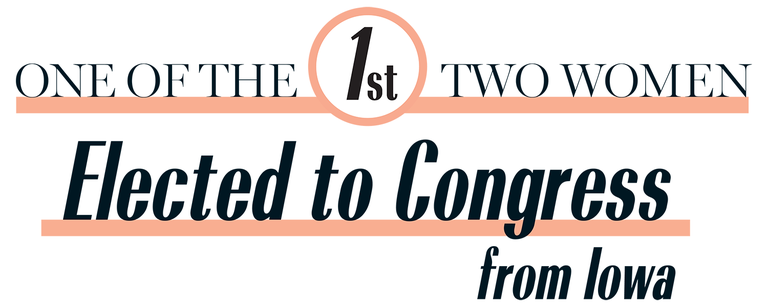
Abby Finkenauer (D-IA)
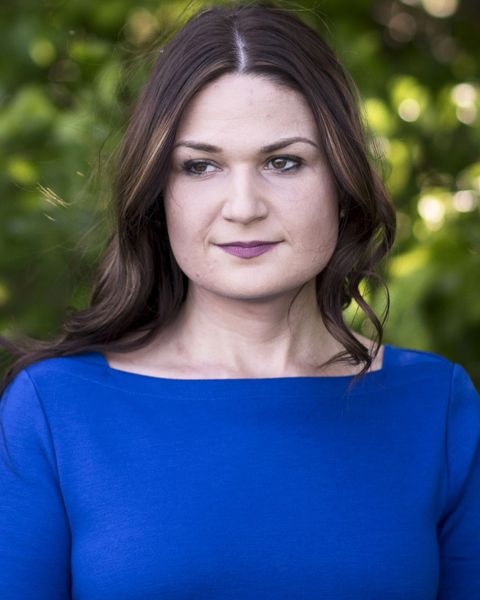
MC: How did you first get interested in politics?
AF: I was a 10-year-old who asked my parents for a subscription to Newsweek. I would devour it. And then on Saturday nights, I would go to church, and then walk down to my grandparents’ house. I’d be sitting there with my grandfather who was a Democrat, my uncle who was a Democrat, and another uncle who was a Republican. We’d talk about what was happening in the world. Even though I was a young girl, I had every right to a seat at the table with grown men.
MC: What will be at the top of your agenda in office?
AF: A big thing for my district is making sure that we finally do have an infrastructure bill, that we bring good paying jobs here to Iowa, that we’re investing in trade schools and apprenticeship programs because not everybody is going to go to a four-year [college]. And quite frankly, you shouldn’t have to to be able to work hard and have a good life like my family was able to have. It’s bringing some of these kind of commonsense issues from the Midwest to Washington.
MC: What does it mean to you to be one of the first women Iowa will send to the House?
AF: Growing up in the ‘90s, there weren’t a lot of women in politics. Or at least they weren’t on the covers of Newsweek. I didn’t know that there was that space for me. It’s exciting now to be in this position where I want to show young women in this state that you can work hard and you can stand up for your community.
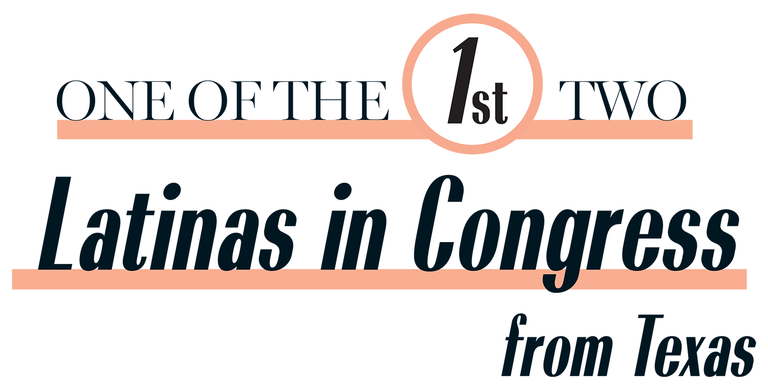
Sylvia Garcia (D-TX)
MC: You ran an unsuccessful bid for this same seat during the first Year of the Woman, in 1992. How have things changed in the last 25 years?
Sylvia Garcia: The biggest change is the number of women running. When I ran in ’92, the numbers were smaller. The network had really just begun. When I look around the freshman class during orientation, we definitely outnumber the men. That was not the case back in ’92. The second thing that’s very important is that to me it’s not just the Year of the Woman. It’s the Year of the Woman of Color. We have certainly made our mark. We’re finally looking in the Congress the way America looks like.
MC: In the 2020 presidential contest, do you think Democrats should nominate a woman?
SG: I think it would be super! Certainly all things being equal I would always vote for a woman.
MC: What women’s issues will you take on in Congress?
SG: I’ve been a voice and a champion for reproductive rights, for equal pay for equal work, for diversity and inclusion. I will be fighting on all those fronts. But I will begin with raising the minimum wage. I think that, particularly women heads of household—in order to keep their families together and make sure that working families have a shot—we need to raise the minimum wage.

Veronica Escobar (D-TX)
MC: You worked for years on political campaigns. Tell me about the first moment you decided that you should be the candidate.
VE: It took 10 years of volunteering for other people, and my insistence that I just wanted to stay behind the scenes. And it took a friend of mine—a former mayor, whose administration I was very fortunate to be a part of—it took him continuously badgering me about running for office. I tease him, and I say he bullied me into running, but it took someone else to force me to look in the mirror and to say, “I have value, and I have enough heart to serve the community that I love.” I have found that a common theme among other female candidates, that women frequently have to be encouraged and pushed into considering running for office. It’s unfortunate because we need more women, but he really made me take a long, hard look at my excuses, and he said, “Look. If you’re unwilling to do the job, you have no right to ask others to do a job that you don’t want to do.” And he was right.
MC: Why have you made the border such a touchstone of your campaign?
Veronica Escobar: It has been an essential component of the politics of cruelty. You have an administration that separates families, that refuses to let asylum seekers into the country, that calls Mexicans rapists and criminals. I am a third-generation El Pasoan. My family has been here for over 100 years. I know the truth. The truth is that as complex as the border is, it is fundamentally a vibrant, safe point of opportunity. And if we cannot change the narrative about our community, then we are going to continue to see very bad public policy directed toward us.
MC: What does it mean to you to be one of the first Latinas elected to Congress from your state?
VE: We made history in Texas during an era of unprecedented bigotry, xenophobia, and anti-immigrant rhetoric and policies. It’s this juxtaposition of having a president and members of Congress who are enabling him to malign and misrepresent communities like mine, and my community fighting back and deciding to make history in the face of all of that. That’s what is so beautiful and powerful.

Janet Mills (D-ME)
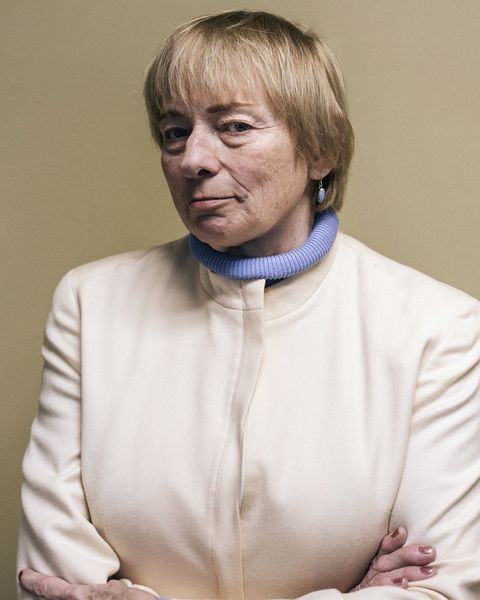
MC: You have been the first woman in many of the offices you’ve held in Maine, like criminal prosecutor and attorney general. Are there any moments of sexism that stand out throughout your career?
Janet Mills: I was the first woman District Attorney in New England and one of the first in the country. When I got on the board of the National District Attorneys Association, I would go to the board meetings and there’d be all men in the room and only one woman: me. Inevitably somebody would turn and ask me if I’d make them a cup of coffee. Things have changed. There were no women lawyers portrayed on TV at that time. Now we have women lawyers on TV. They’re all a size 4 and perfectly coiffed with makeup and all that stuff. That’s just the light version of who we are. But hopefully that will change, too.
MC: What would you say when people would ask you to get a cup of coffee?
JM: I’d say, “I’m sorry, I’m here on my own credentials. I’m a District Attorney.”
MC: What was your most memorable moment on the campaign trail?
JM: Two weeks before the election, my youngest stepdaughter gave birth. To see a little baby girl being born in the middle of a campaign where I’m trying to be the first woman governor—it was a pretty neat moment. I just kept thinking, “How is her life going to be different from mine? What kind of opportunities will she have?” Hopefully so many more than we had before.
MC: Do you think the Democrats should nominate a woman for president in 2020?
JM: I think there’s some qualified people from both genders, and I’m sure that there’ll be people coming out of the Senate and the governorships who will be interested in running as well. I can’t say who the most credible candidates are going to be because it’s just too early and I don’t know them all. Should you should put a woman in because she’s a woman? If it comes to a qualified man and a qualified woman, I would support the qualified woman.

Lizzie Pannill Fletcher (D-TX)
MC: Tell me why you decided to run and why this year.
Lizzie Fletcher: I was not someone who had always planned on running for Congress, but I have been practicing law for about a dozen years. I had gotten very comfortable that there were thoughtful, smart grown-ups making decisions for us in the Obama administration. After 2016, when I was watching the transition and the beginning of this administration and this Congress—that really failed to hold this administration to account—I found myself asking over and over: Where are all the grown ups? Then I realized I was one of them. All this work and all this training that I had and all of my experience representing people from our community was something we really needed in Washington, so I decided to take on a nine-term incumbent because I felt like he really wasn’t representing our district, and that I could do a better job.
MC: How did you defeat your incumbent in this very competitive race? How did you win?
LF: I got into the race because I felt our community was not getting the representation that we deserved. I believed that the incumbent’s hardline, right-wing stances were inconsistent with the values of our community. I’ve lived in this community nearly all of my life and I’ve been representing people [as a lawyer] from this community from all walks of life for a decade. I think that resonated with a lot of people who lived here who knew that the kinds of positions—or frankly, lack of positions and lack of leadership—was inconsistent with who were are in this community. I think the reason that we won and how we defeated the nine-term incumbent was both making sure that we turned out every single Democratic voter that we could—that was a huge part of our effort—and making sure that our message to everyone was about shared values that appealed to people throughout the community.
MC: What women’s issues specifically will you take on?
LF: I’m a long time Planned Parenthood volunteer. We need to protect women’s access to affordable healthcare. We need to protect quality, nonjudgmental providers like Planned Parenthood and get them out of this political maelstrom. We need to ensure that we are prioritizing women’s reproductive healthcare and access to healthcare and that kind of funding at a federal level. Reproductive healthcare and reproductive rights are central to women’s ability to control their destiny, to maintain their economic independence, and their family life. We absolutely have to protect it and it’s one of my top priorities.
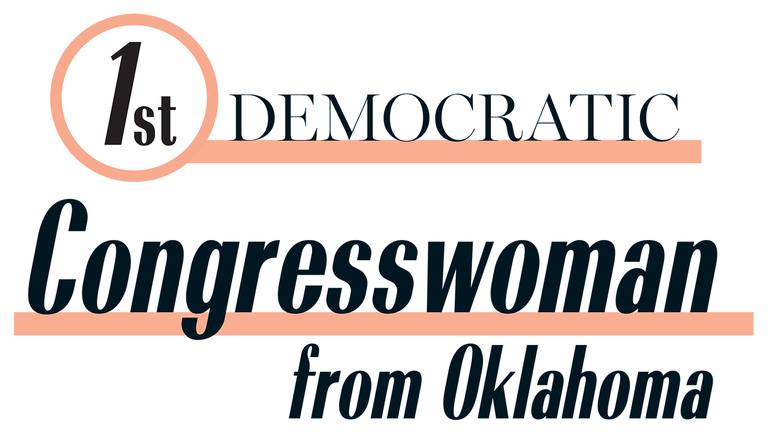
Kendra Horn (D-OK)
MC: Before you became a candidate, you spent the last few years training women to run for office. Why did you do that work?
Kendra Horn: Oklahoma is 49th in the nation in terms of women serving in elected office. Having women’s voices at the table is critical for a number of reasons. One, because we see over and over again that when women are serving in elected office, they have a tendency to reach across the aisle and pass more legislation. But the reason that representation matters so much is because it results in better policy and better outcomes when we have elected officials who look more like our communities, who can reflect the diversity of experiences inside and understand the unique challenges that working women, mothers, and different kinds of families face.
MC: Why do you think it is that Oklahoma has such as abysmal rate of female representation?
KH: I think it is a combination of reasons. It’s hard to see yourself in a place when you don’t see anybody that looks like you, and that’s one of the reasons that representation matters. It’s not that we don’t want the people that have been in leadership to be in leadership, but it’s a whole lot easier to see yourself some place if there are people that you can relate to, and it requires effort and intention to change things. There’s also the factor that women are less likely to self-nominate than men. They have to be asked more often to run than men do, and we place higher hurdles for women running for public office than we do for men. So, it takes more work, but having a class with this many women, and having more women elected across the country, that really, I think, will make a difference going forward in terms of our representation and balance.
MC: Your race was the biggest upset of the midterms: The Republican incumbent won in 2016 by 20 points, and polls showed him with a double-digit lead just days before the election. How did you win as a Democrat in this deep red state?
KH: The district is changing. We’ve seen a significant amount of growth and development over the last few years, but at the same time, the voter turnout had been dropping pretty significantly. I think that’s in large part due to the idea that if someone didn’t feel like they fit into a particular box—if they weren’t a Republican, if they were an independent, or had some other opinion—they felt their vote didn’t matter and their voice didn’t count. We went out there and talked to everybody. We talked to Republicans, we talked to Democrats, we talked to Independents, and we brought more people to the table. So we saw a big increase in voter turnout. It was people in this district that were ready for something new who really pushed us over the edge.

Lauren Underwood (D-IL)
MC: How does your background as a nurse prepare you for Congress?
Lauren Underwood: In nursing school, you have to learn how to walk into a patient’s room and quickly establish trust. Usually you get five minutes, max. You’re talking to the patient or their family and building that rapport so that they know that the advice that you’re giving, and the only reason why you’re there, is to help them get better. You look into their eyes and you make that connection. It’s the same thing you do on the campaign trail every day. People share their most intimate vulnerabilities. Seriously. And you build that trust. I was not expecting to draw upon my skill set in that way, but at its core it's the same thing.
MC: You are the youngest black woman ever elected to Congress. Why is that significant, and what does that distinction mean to you?
LU: Going back to colonial America, who serves in Congress? White, wealthy landowners. And traditionally, this has been a very, very, very elite institution, and folks like me did not have a voice in that elite institution. Now, we have a small caucus. We’re able to do this work on behalf of yes, our constituents—like the 520,000 people in the Illinois Fourteenth—but also the other young women of color around the country who are affected by the policies coming out of the Congress every day. We see it in the policies they pass, like this continual assault on women’s reproductive health care, which would never happen if the Congress was representative of the American people. That’s why representation matters.
The rising American electorate is younger and more diverse than we have ever seen before. Millennials certainly make up a huge voting bloc within our electorate, but also people of color. Our representation in federal policy making is not at all in proportion to the population. That means our tax policy and social safety net policies, health care, climate change, all these things affect communities of color and young people in ways that we have not discussed within the halls of Congress, and certainly have not had the opportunities to hear from those communities directly in hearings and testimonies. Having representatives that have the lived experience that we can offer, perspective that we can share, is so crucially important.
MC: What’s your advice to other young women who are thinking about running for office?
LU: Girlfriend, we need you to run! Please do it. There is nothing about it that’s convenient, nothing about that is easy. But it is 100-percent worthwhile. If it’s not Congress, there’s a school board or country commission. There are library boards and water boards and all these different positions in local and state government. The Marie Claire reader is smart and talented and certainly has a lot to offer, and I think that she needs to run. And honestly, I’m ready to help. For real. I’m not just playing.
A version of this article will appear in the forthcoming March 2019 issue of Marie Claire.
RELATED STORIES

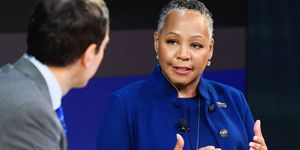
Rebecca Nelson is a magazine writer in New York. Her work has appeared in the Washington Post magazine, GQ, and many other publications.
